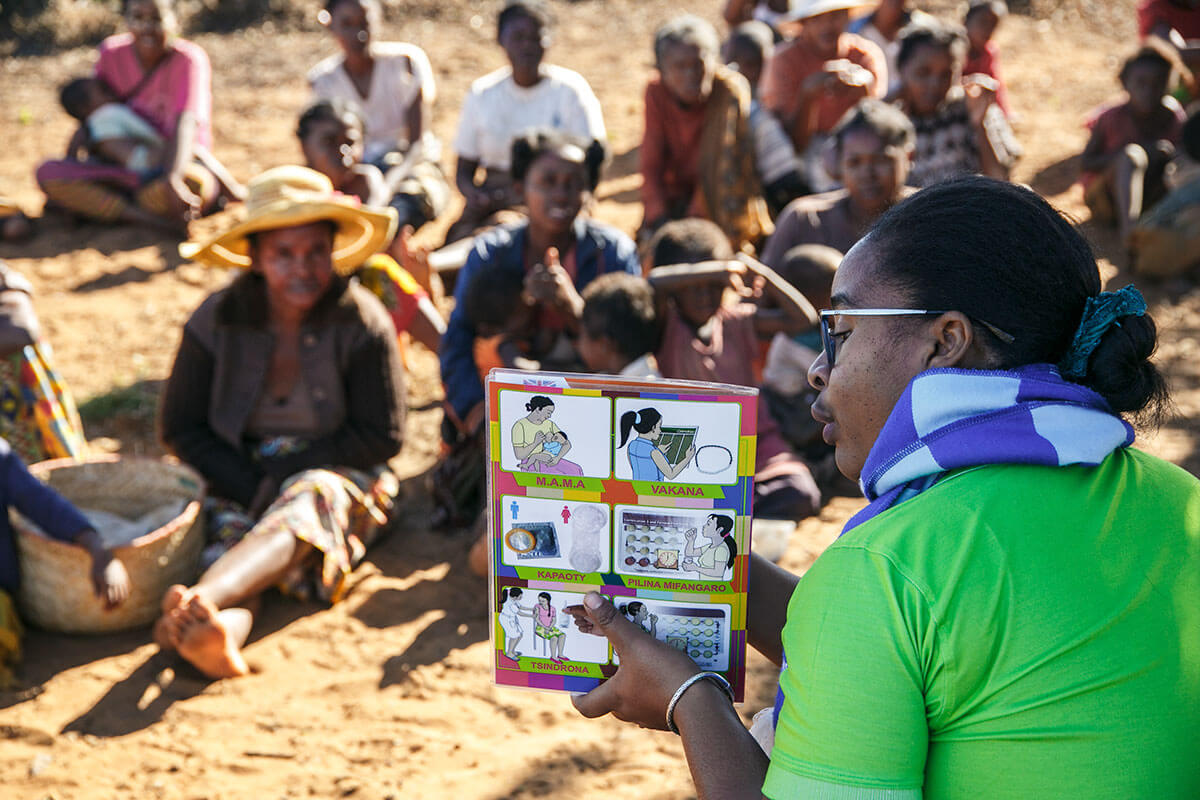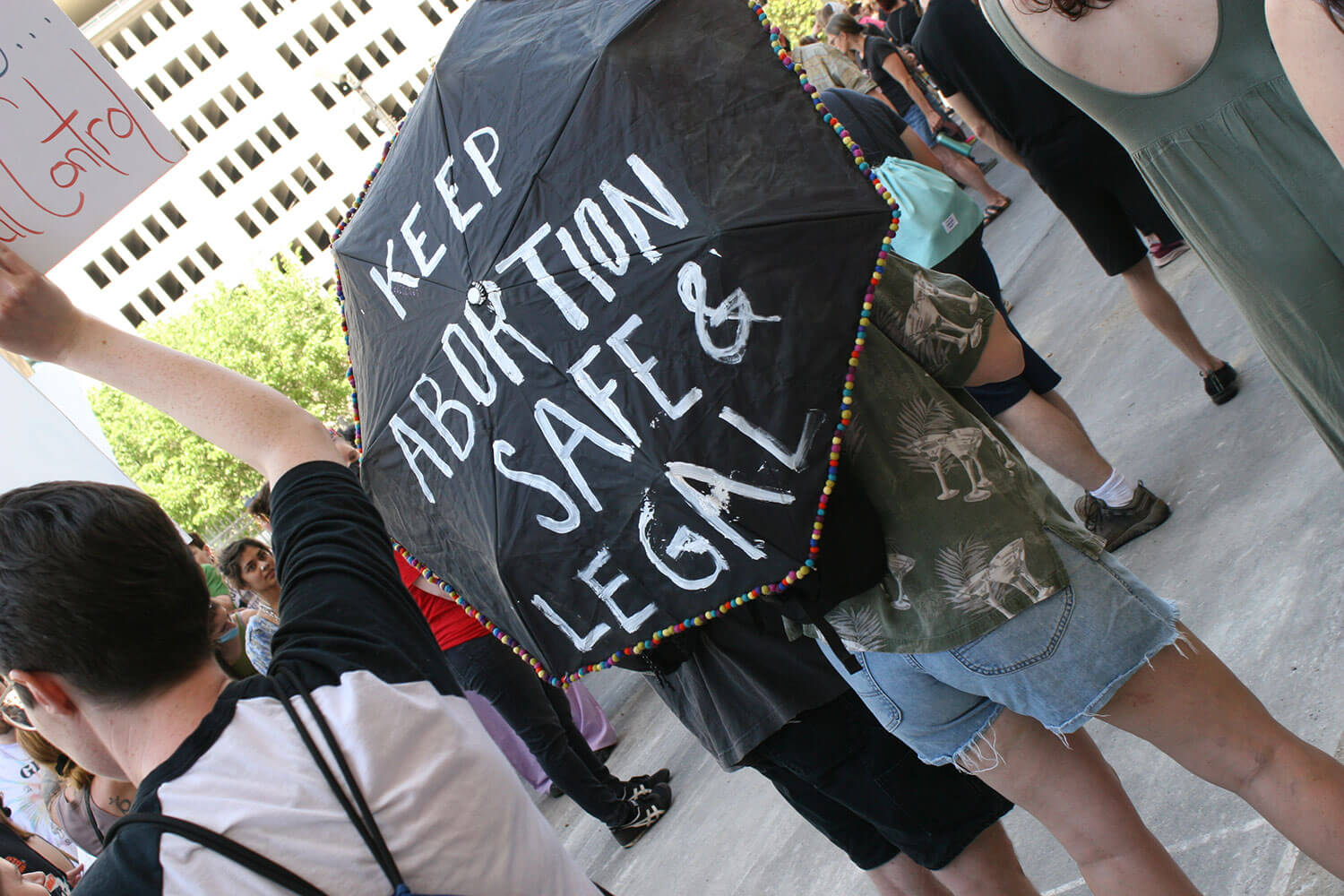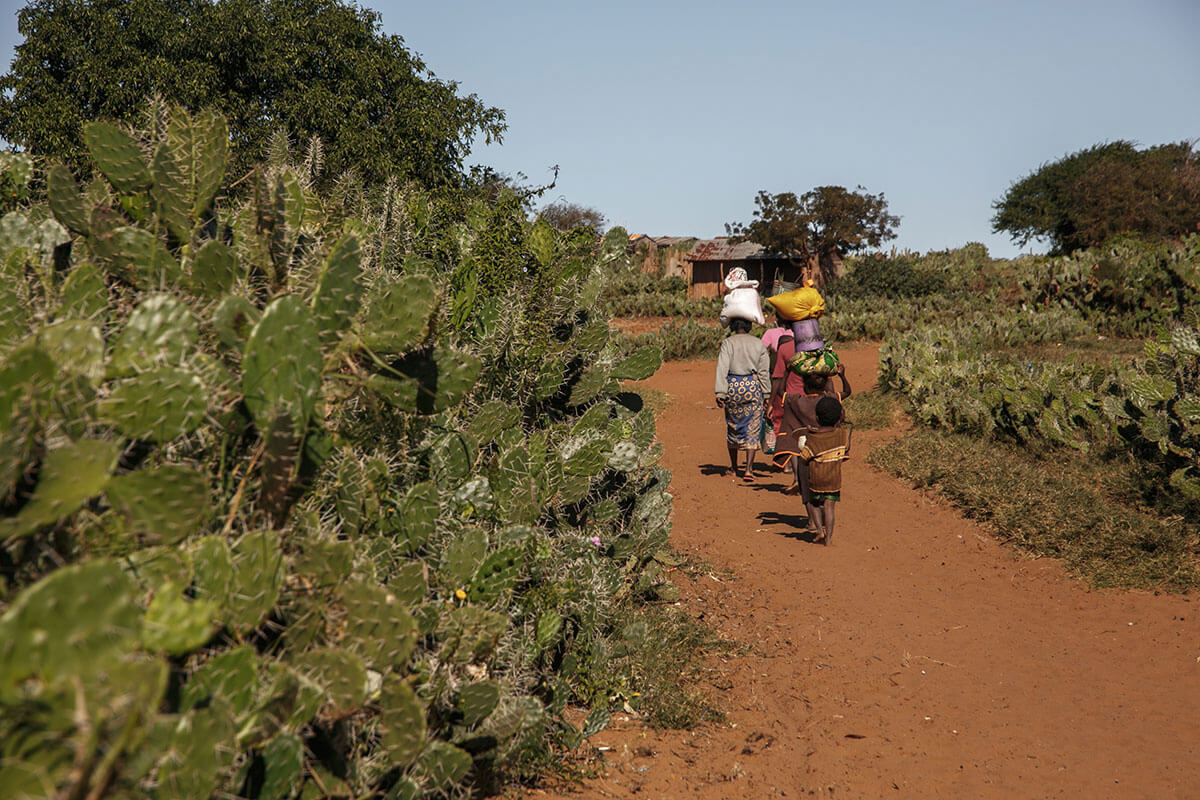For impact, invest in contraception
Today’s donors want to know that their donations are having a measurable impact. With so many serious problems facing our world, it can be hard to decide where your gifts will have the best “return on investment.”
But there’s one intervention that consistently improves lives, makes families healthier and more economically secure, and transforms whole communities. It reduces maternal and newborn deaths, advances gender equality, keeps girls in school, and makes communities more resilient to climate change.
Providing women with contraception is one of the most impactful investments you can make. In fact, research published by the independent Copenhagen Consensus Center named family planning a “best buy” for global development, with long-term health and economic benefits worth $120 for each dollar spent on family planning.
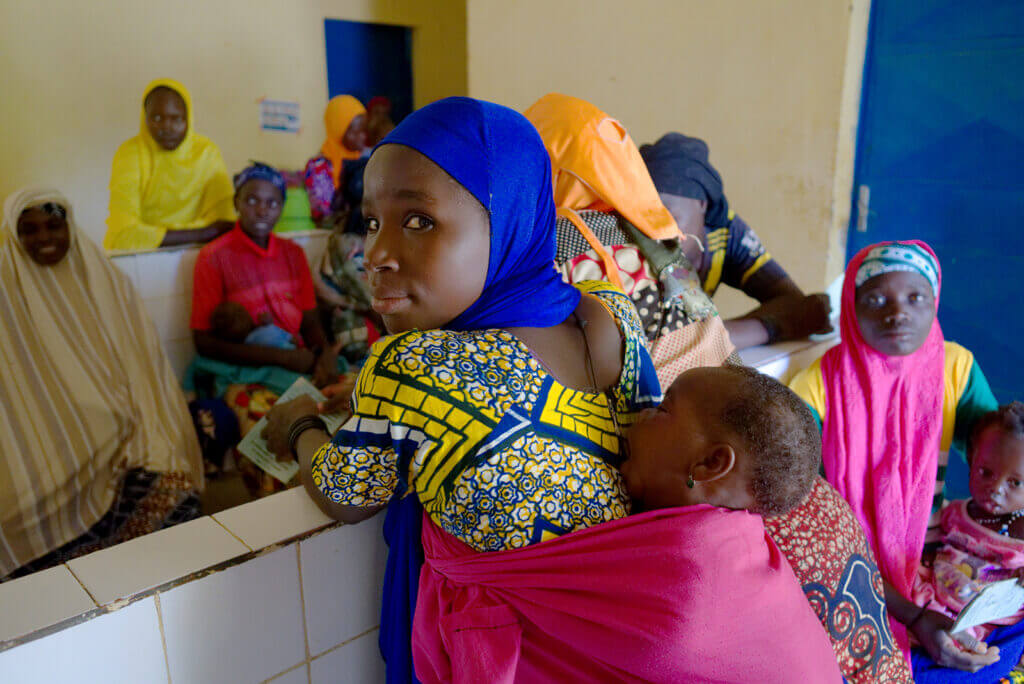
Improving health and wellbeing
When women have access to contraception, they can avoid unwanted pregnancies, unsafe abortions and even pregnancy-related deaths—and the consequences are profound. But right now, 218 million women worldwide want to avoid pregnancy but cannot access a modern method of contraception. They’re denied basic bodily autonomy.
In their Adding It Up report, the Guttmacher Institute examines the impact of fully investing in sexual and reproductive healthcare. They estimate that if all women wanting to avoid pregnancy in low- and middle-income countries were able to use contraception and all pregnant women received adequate healthcare, unintended pregnancies, unsafe abortions, and pregnancy-related deaths would drop by two-thirds. Newborn deaths and new HIV infections would also decrease significantly.
This dramatic impact can only be achieved by overcoming the barriers that keep women from accessing contraception in the first place. This includes securing sufficient funding, reaching remote communities where contraception is currently unavailable, and reducing social stigma. When these barriers are addressed, women have the chance to thrive. One MSI outreach provider, Jeannica, works in the Androy region of Madagascar, sees the impact contraception has for the women she serves: “They will have a more fulfilled life both emotionally and financially and will focus on how to improve their lives and the lives of their children.”
Even a small increase in contraceptive use has a big impact: A recent study on lives saved in South Africa estimates that a 0.7% annual increase in use of modern contraceptives would lead to 7,000 fewer infant and child deaths and 600 fewer maternal deaths by 2030.
Providing adequate reproductive healthcare for women in low- and middle-income countries would cost an additional $31 billion. Lives would be saved and health dramatically improved—but the effects go beyond individual outcomes. Every additional $1 spent on contraceptive services saves $3 in the cost of maternal, newborn and abortion care by reducing unintended pregnancies. That’s money that countries can invest in infrastructure, health and education.
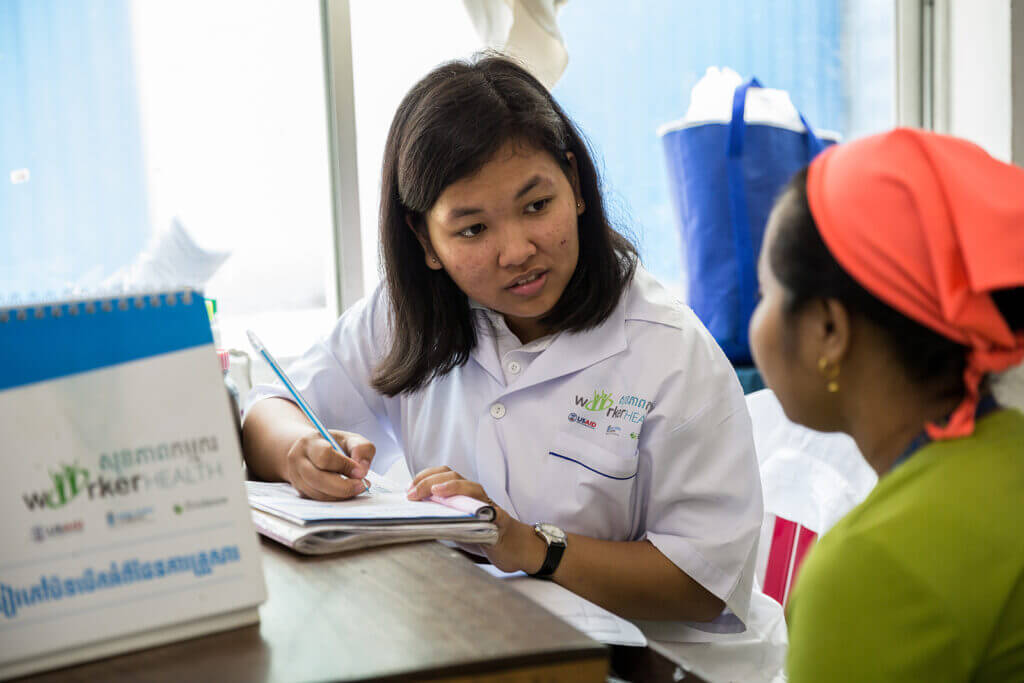
Strengthening economies
When girls can finish their education, they’re better able to earn a living—improving the family’s financial stability and contributing to their community’s economic development. In fact, educating girls and adding women to the workforce has the potential to add up to $12 trillion USD to global growth!
But in many low- and middle-income countries, a girl is more likely to become pregnant before age 18 than to finish secondary school. Adolescents are twice as likely to die due to pregnancy-related complications compared to adult women, and children born to adolescents are more likely to have poor health outcomes. Adolescent pregnancies rob girls of their potential, endanger their health and deprive entire communities of economic growth.
Adolescents face extra barriers in accessing contraception. Guttmacher found that 43% of women ages 15-19 in low- and middle-income countries want to avoid pregnancy but are not using contraception. Reaching these young women with reproductive health sets them on a path to higher income and greater household assets for their families, creating more prosperous communities.
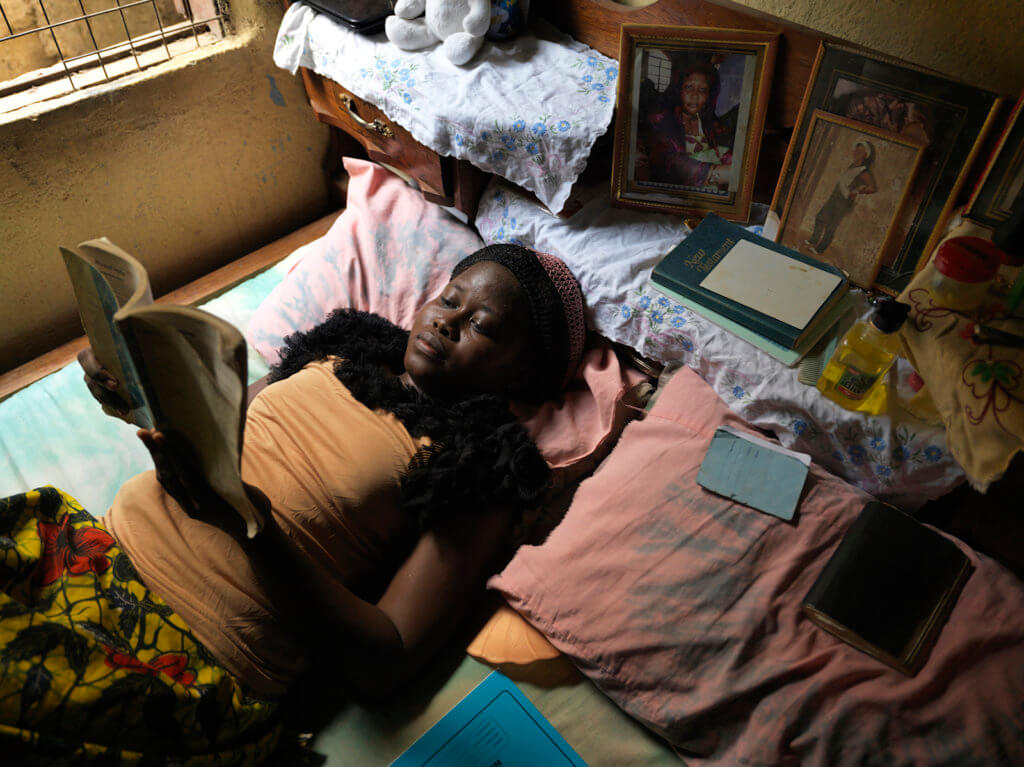
Building climate resilience
When women are educated and able to earn income for their families, they’re more resilient in the face of climate change. When natural disasters strike, being able to control if and when to have another child makes a material difference for families as they recover.
But contraception helps communities adapt in another way: Free from unintended pregnancies, women are better able to contribute to finding solutions to the climate crisis. We saw this firsthand in Madagascar, where we brought contraception to communities living near protected forests. The women who used family planning were more likely to participate in efforts to conserve the forests, benefitting their entire community.
Making choice possible makes an impact
To expand gender equality, ensure access to contraception
The impacts of contraception go beyond allowing an individual woman to avoid an unintended pregnancy. UNESCO estimates that 132 million girls are out of school. One of the biggest barriers is lack of access to reproductive healthcare. In order to support girls and young women, we need to ensure that they have access to contraception, safe abortion, and other necessary reproductive healthcare services. The impact of which ripples out to families, communities and entire countries—and there’s never been a better time to invest.
Today, there are 1.8 billion people between the ages of 10-24—the largest generation of young people in history. The vast majority of them live in developing countries. If given the opportunity to control their bodies and futures now, they can spur economic development, transform their countries, and create a better future for all of us.
For a good “return on investment” to your giving, it’s hard to beat contraception. By making choice possible for women and girls, you can make a profound impact.



